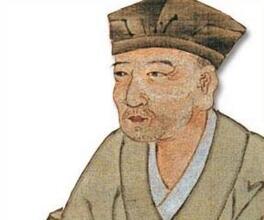|
PUSH ITEMS Today, I’m going to spend a few hours with a group of young composers who are assembling in-person and online to read through a dozen or so new short songs based on two haiku. The idea for this event grew out of a lesson with one of my students (Tim). As I recall, he found a compilation of poems written near the death of the poets’ lives; they are part of a tradition in Japanese literature and have become known in English as “death poems.” Tim’s initial idea was to compose a song cycle but after some conversation about the craft of setting texts, he suggested that we get a group of composers together to set the same two poems and then compare the different approaches each person took. We are fortunate to have two excellent professional singers to read through the songs today (Maria Jette and Jake Endres) along with pianist Janet Scovill. Three of the composers (Becka, Joe, and Henry) will join us from Utah, the Quad Cities and Milwaukee and four will be present (Tim, Stephen, Landon and Randall). I’ve inserted myself in this group of younger, more-abled composers as I need to show myself. It is relatively easy to hide behind humility in the service of promoting one’s students as a teacher/mentor; showing my newest stuff is one way to earn my humility the hard way. I will share my warts and we will discuss as colleagues the difficulty of setting texts. The poems were written by two Japanese poets Kasenjo and Basho. Here is the information I could quickly find about the poets. ###***### A note on the translations by the translator, Michael Burch. We must thank poet and professor Michael Burch for his translations and adaptations from the original Japanese. ###***### After a thorough (2 minute) google search, I could not find anything about our haiku poet, Kasenjo, except the year of his death. Despite this, his poem appealed to me a great deal. Born: ?? Died: 1776 KASENJO Depths of cold Unfathomable Ocean roar. ###***###  ###***### Matsuo Basho Born: 1644 Died At Age: 50 Also Known As: Matsuo Chūemon Munefusa, Matsuo Bashō, Matsuo Kinsaku Born In: Ueno, Mie Famous As: Poet Matsuo Basho was a 17th century Japanese poet, considered to be the greatest master of the haiku—a very short form of poetry. The most famous poet of the Edo period in Japan, he was much acclaimed during his lifetime and his fame increased manifold over the centuries following his death. His father was believed to have been a low-ranking samurai and Basho started working as a servant early on in life to earn his livelihood. His master Tōdō Yoshitada loved poetry, and in his company Basho too became inclined towards this literary form. Eventually he learnt poetry from Kigin, a prominent Kyoto poet, and was exposed to the tenets of Taoism which greatly influenced him. He started writing poetry which received much recognition in the literary circles, and established him as a talented poet. Known for his brevity and clarity in expression, he gained recognition as a master of haiku. He was a teacher by profession, and a successful one at that, but this gave him no satisfaction. In spite of being welcomed into well-known literary circles in Japan, he shunned the social life and wandered throughout the country looking for inspiration for his writing. He achieved much popularity during his lifetime though he could never feel at peace with himself and was constantly in the throes of mental turmoil.
BASHO On a journey, ill: My dream goes wandering Over withered fields.
Comments are closed.
|
AuthorComposer-producer-cellist-teacher-executive director of Composers Institute, a Minnesota nonprofit empowering the creative work of musicians in week-long intensive experiences. More info at composersinstitute.org. Archives
April 2024
Categories |
 RSS Feed
RSS Feed